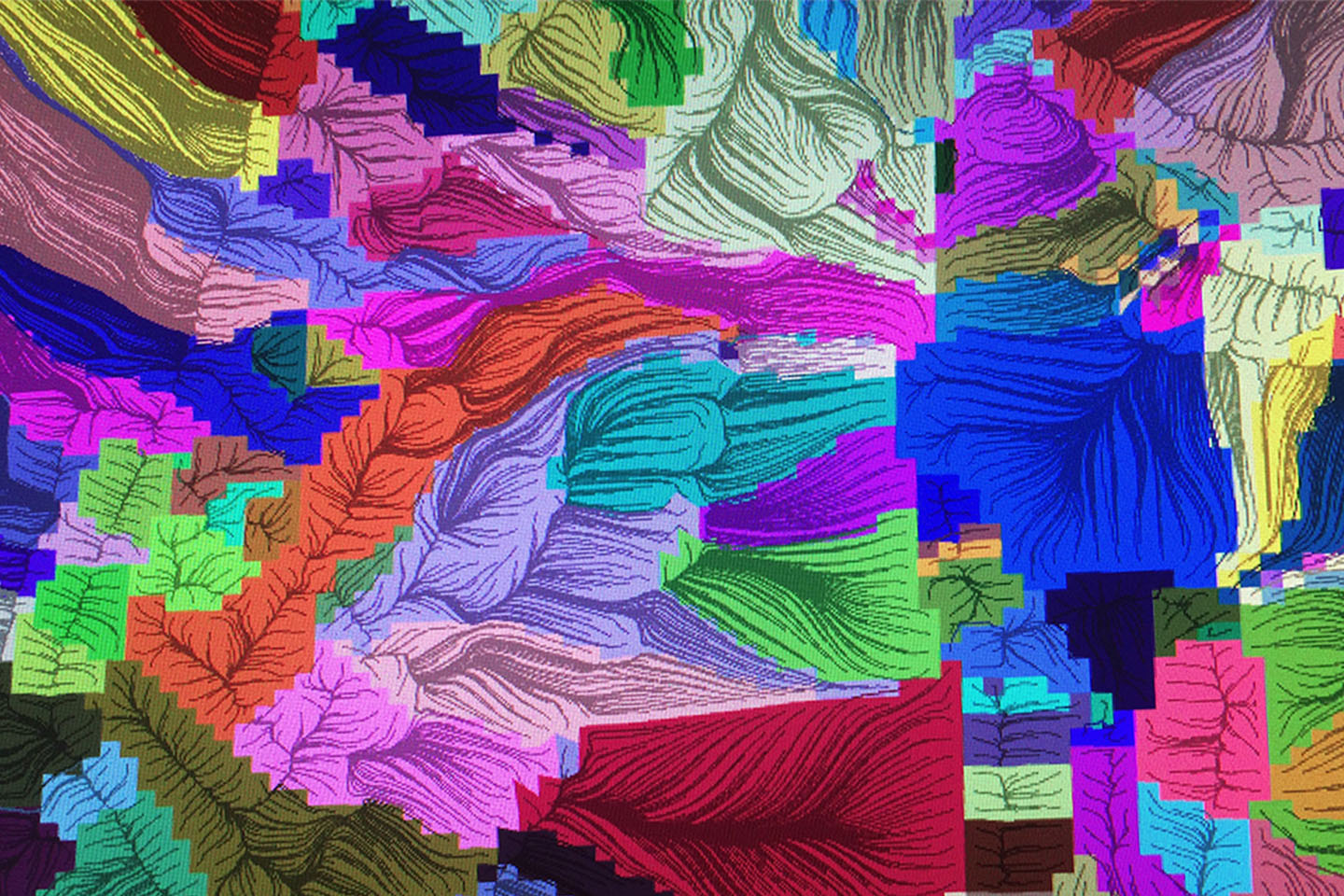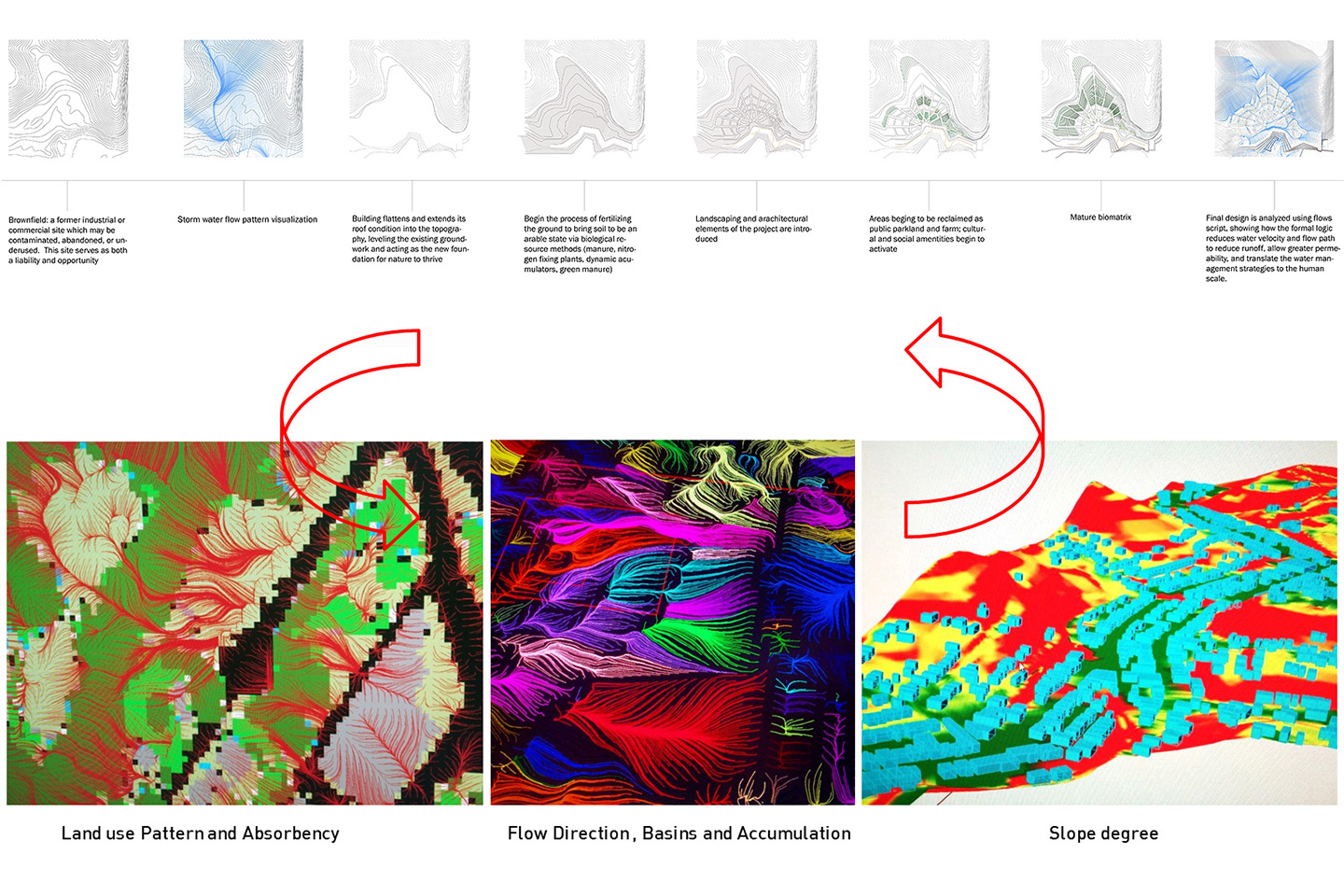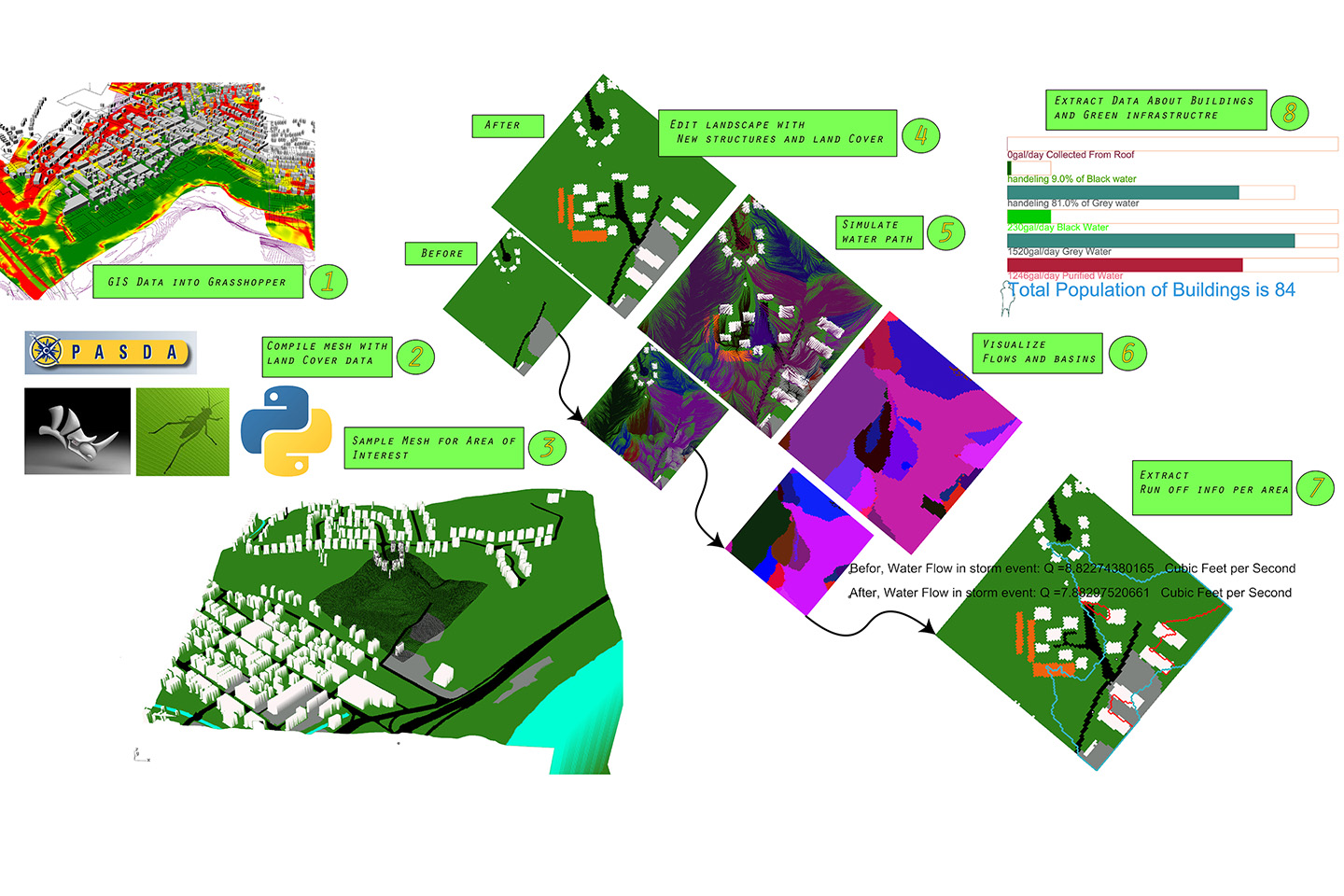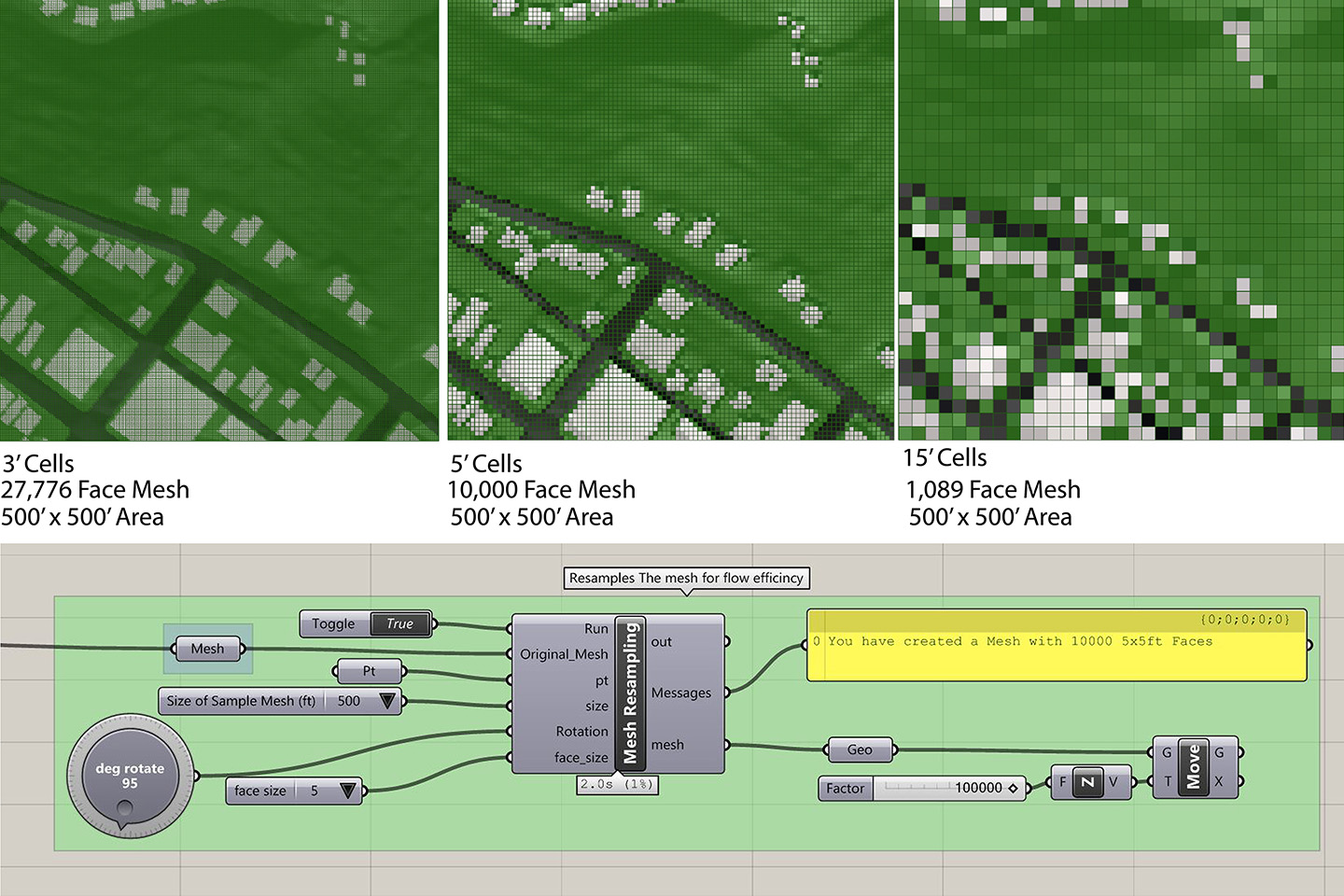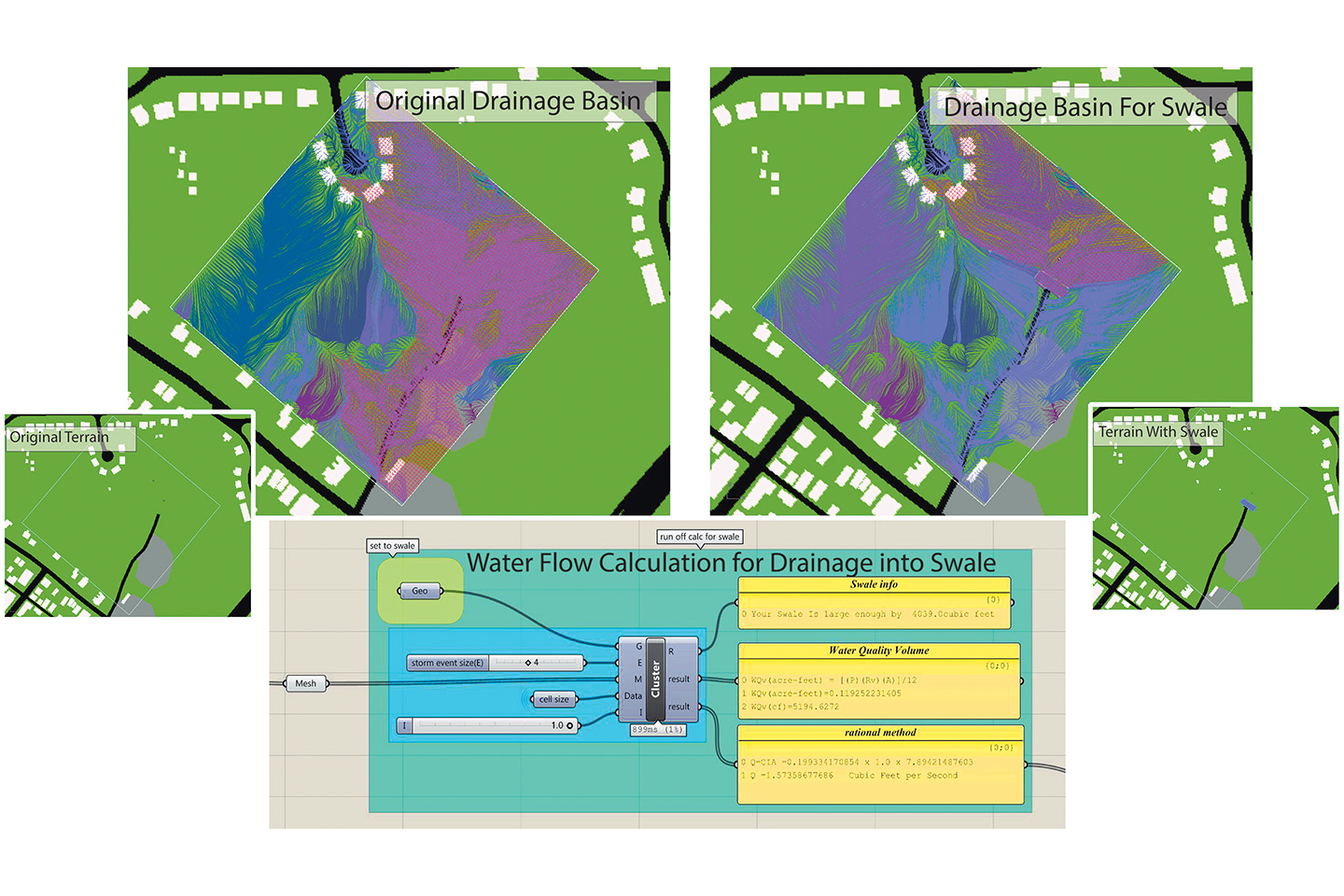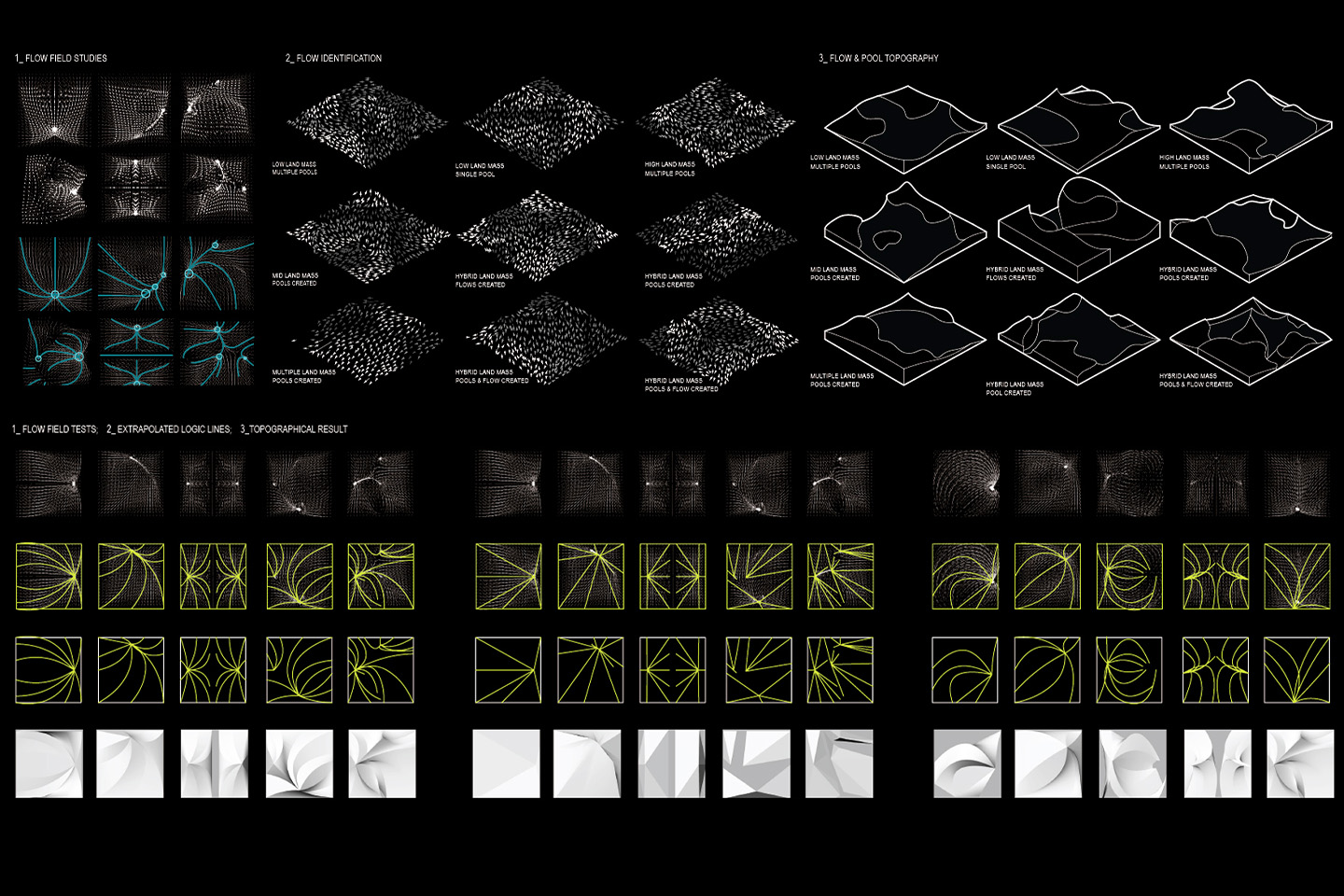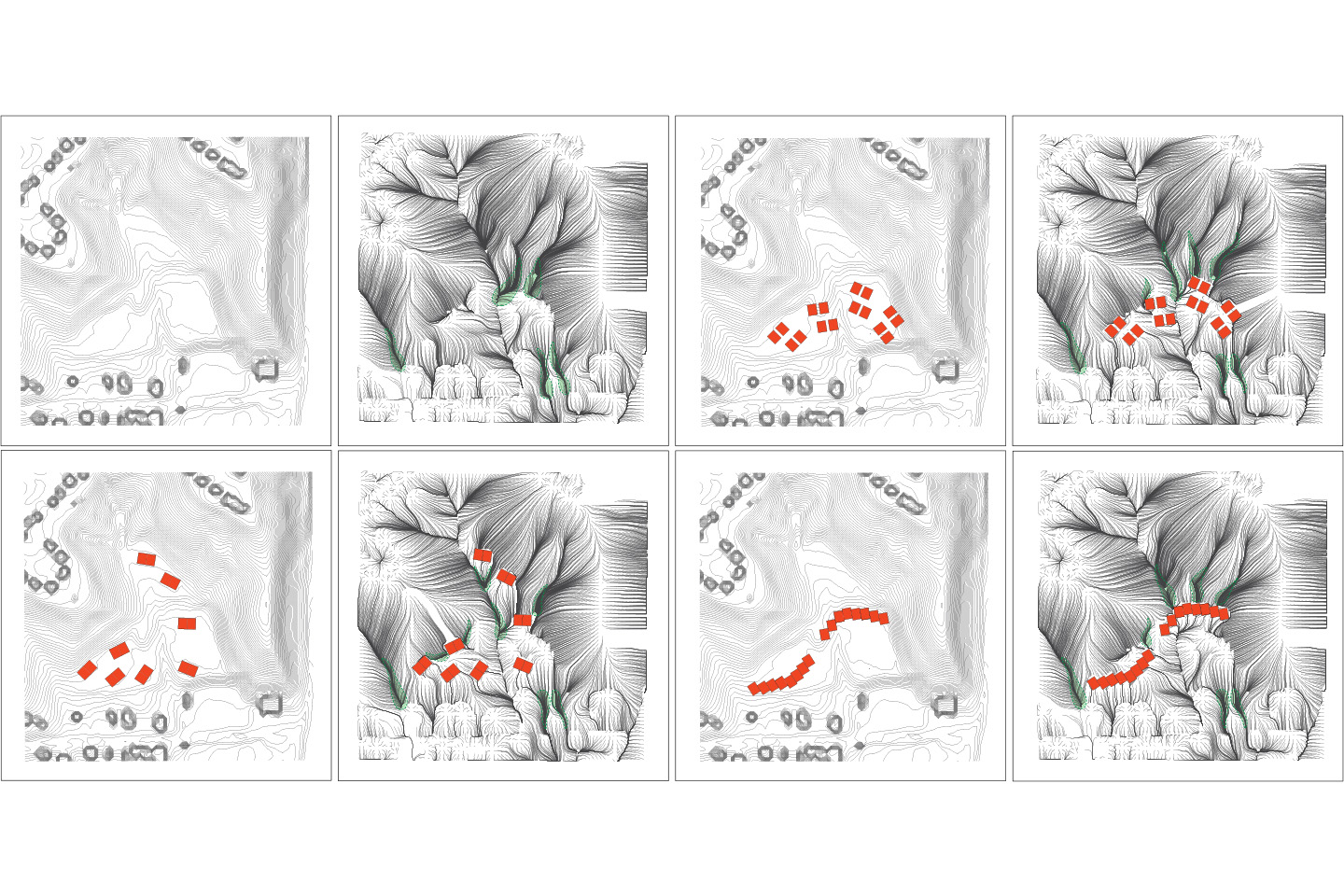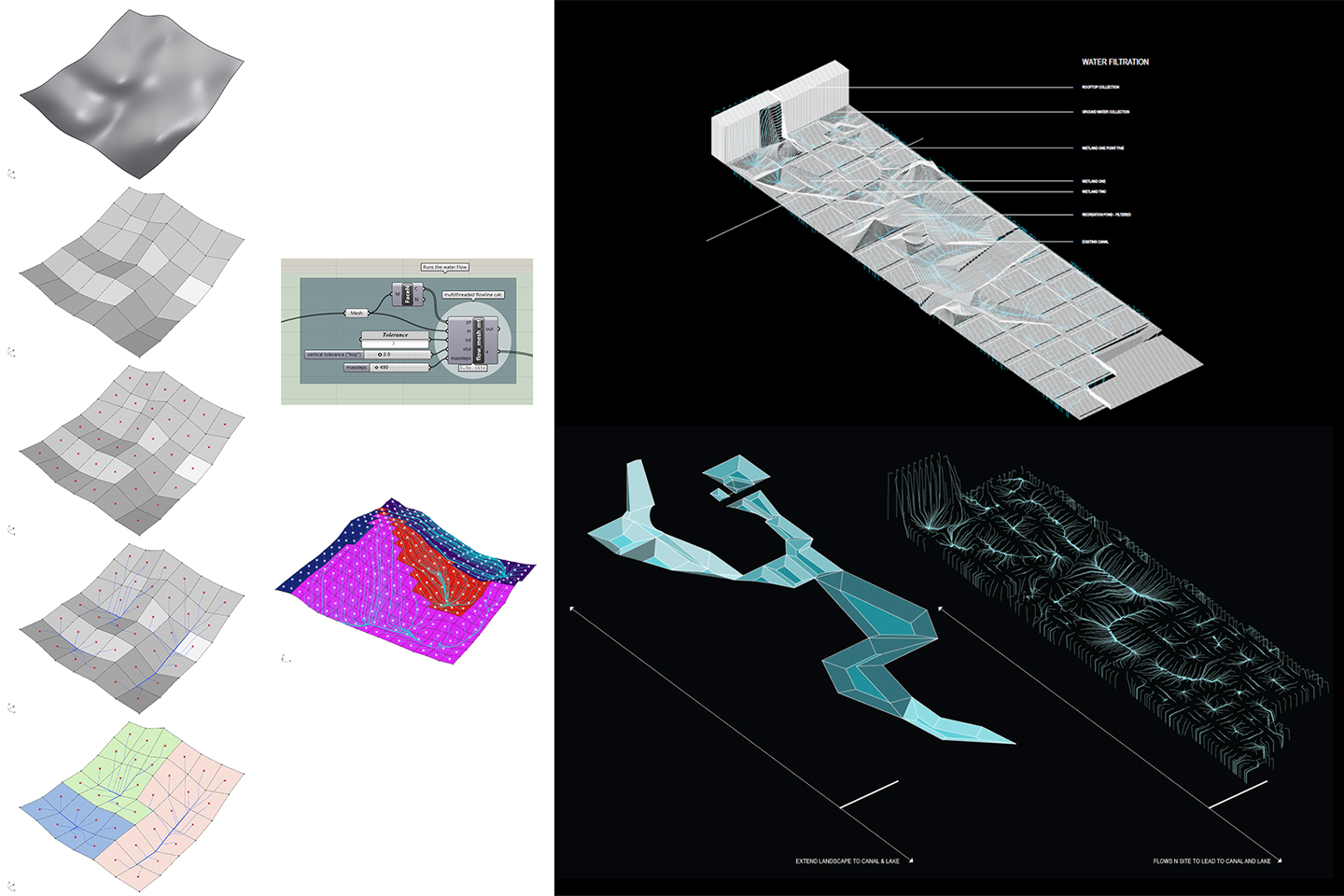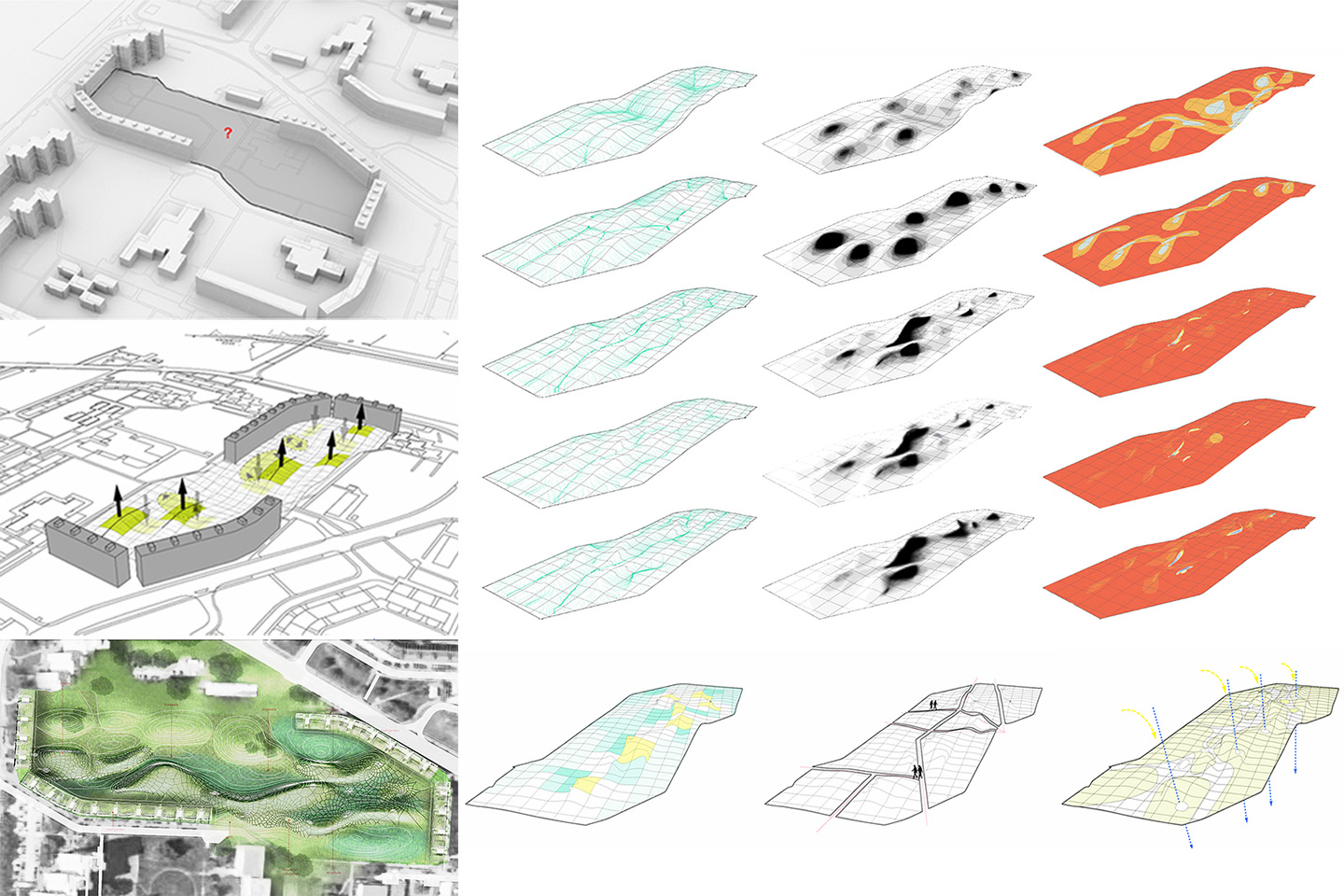Epiflow: Adaptive Analytical Design Framework for Resilient Urban Water System
| CMU School of Architecture | 2013-2014 |
|Design Research |
In the era of big data, the design and decision making tool sets for urban planning are fairly primitive. What existing models lack is the ability to visualize, query, and overlay dynamic information between different types of urban systems that affect each other on multiple scales. The scope of this project includes the incorporation of GIS data and green infrastructure solutions into the development of analytical parametric design workflow. Ultimately, it aims to devise a tool set to help visualize, measure, and dynamically model urban relationships affected by rain- and storm-water flows, and thus contribute to a better understanding of the ever-changing forces that affect design and place-making on urban scale. Simulation has the ability to represent information flows (environmental, social, performative), to test causality between these systems, and gauge their capacity for adaptation and self-maintenance. For the EpiFlow designer, a focus is given on determining capacities and strategies for engaging biotic systems in relationship to urban waste water systems and storm water management; such utility ultimately enables urban ecological recovery in the context of human health and constructed landscapes. This research workflow has been tested within a series of design studios utilizing the simulation parameters to determine the land and building form.
Protected: Epiflow (Design Modeling Symposium) Protected: Epiflow Protected: Decade of Design

